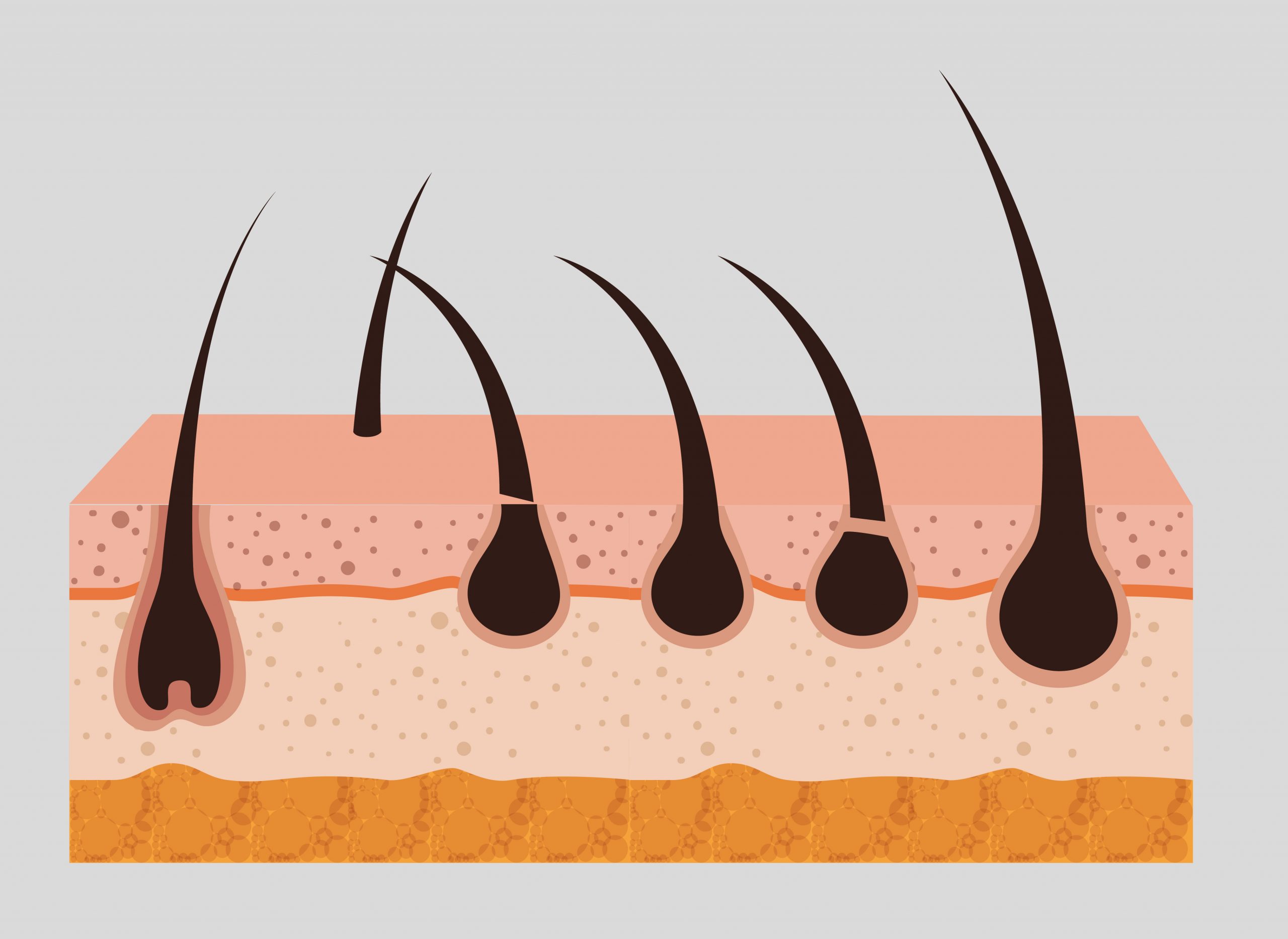

Just as people’s joints stiffen with age, making it difficult to move about, hair follicle stem cells stiffen, making it difficult to develop hair, according to a new Northwestern Medicine study. The scientists discovered that softening MicroRNA cells of the hair follicle increases their likelihood of producing hair.
Northwestern researchers discovered how to soften those stem cells, allowing them to regrow hair. The researchers describe in a mouse study published this week in PNAS that they can soften the stem cells by increasing the synthesis of a little RNA called miR-205, which relaxes the hardness of the cells. Researchers genetically modified stem cells to create more miR-205, which stimulated hair growth in both young and old mice.
“They started to grow hair in 10 days,” said corresponding author Rui Yi, the Paul E. Steiner Research Professor of Pathology and professor of dermatology at Northwestern University Feinberg School of Medicine. “These are not new stem cells being generated. We are stimulating the existing stem cells to grow hair. A lot of times we still have stem cells, but they may not be able to generate the hair.
“Our study demonstrates the possibility of stimulating hair growth by regulating cell mechanics. Because of the potential to deliver microRNA by nanoparticles directly into the skin, next we will test whether topically delivered miR-205 can stimulate hair growth first in mice. If successful, we will design experiments to test whether this microRNA can promote hair growth potentially in humans.”
This research was carried out in genetically modified mice models. The scientists used advanced microscopy technologies, such as atomic force microscopy and two-photon microscopy, to detect stiffness and track cell activities in live animals.
Jingjing Wang, Yuheng Fu, and Kathleen Green are among the other Northwestern authors.
The article is titled “MicroRNA-205 promotes hair regeneration by modulating mechanical properties of hair follicle stem cells.”
more recommended stories
 AI Predicts Chronic GVHD Risk After Stem Cell Transplant
AI Predicts Chronic GVHD Risk After Stem Cell TransplantKey Takeaways A new AI-driven tool,.
 Red Meat Consumption Linked to Higher Diabetes Odds
Red Meat Consumption Linked to Higher Diabetes OddsKey Takeaways Higher intake of total,.
 Pediatric Crohn’s Disease Microbial Signature Identified
Pediatric Crohn’s Disease Microbial Signature IdentifiedKey Points at a Glance NYU.
 Nanovaccine Design Boosts Immune Attack on HPV Tumors
Nanovaccine Design Boosts Immune Attack on HPV TumorsKey Highlights Reconfiguring peptide orientation significantly.
 High-Fat Diets Cause Damage to Metabolic Health
High-Fat Diets Cause Damage to Metabolic HealthKey Points Takeaways High-fat and ketogenic.
 Acute Ischemic Stroke: New Evidence for Neuroprotection
Acute Ischemic Stroke: New Evidence for NeuroprotectionKey Highlights A Phase III clinical.
 Statins Rarely Cause Side Effects, Large Trials Show
Statins Rarely Cause Side Effects, Large Trials ShowKey Points at a Glance Large.
 Anxiety Reduction and Emotional Support on Social Media
Anxiety Reduction and Emotional Support on Social MediaKey Summary Anxiety commonly begins in.
 Liquid Biopsy Measures Epigenetic Instability in Cancer
Liquid Biopsy Measures Epigenetic Instability in CancerKey Takeaways Johns Hopkins researchers developed.
 Human Antibody Drug Response Prediction Gets an Upgrade
Human Antibody Drug Response Prediction Gets an UpgradeKey Takeaways A new humanized antibody.

Leave a Comment